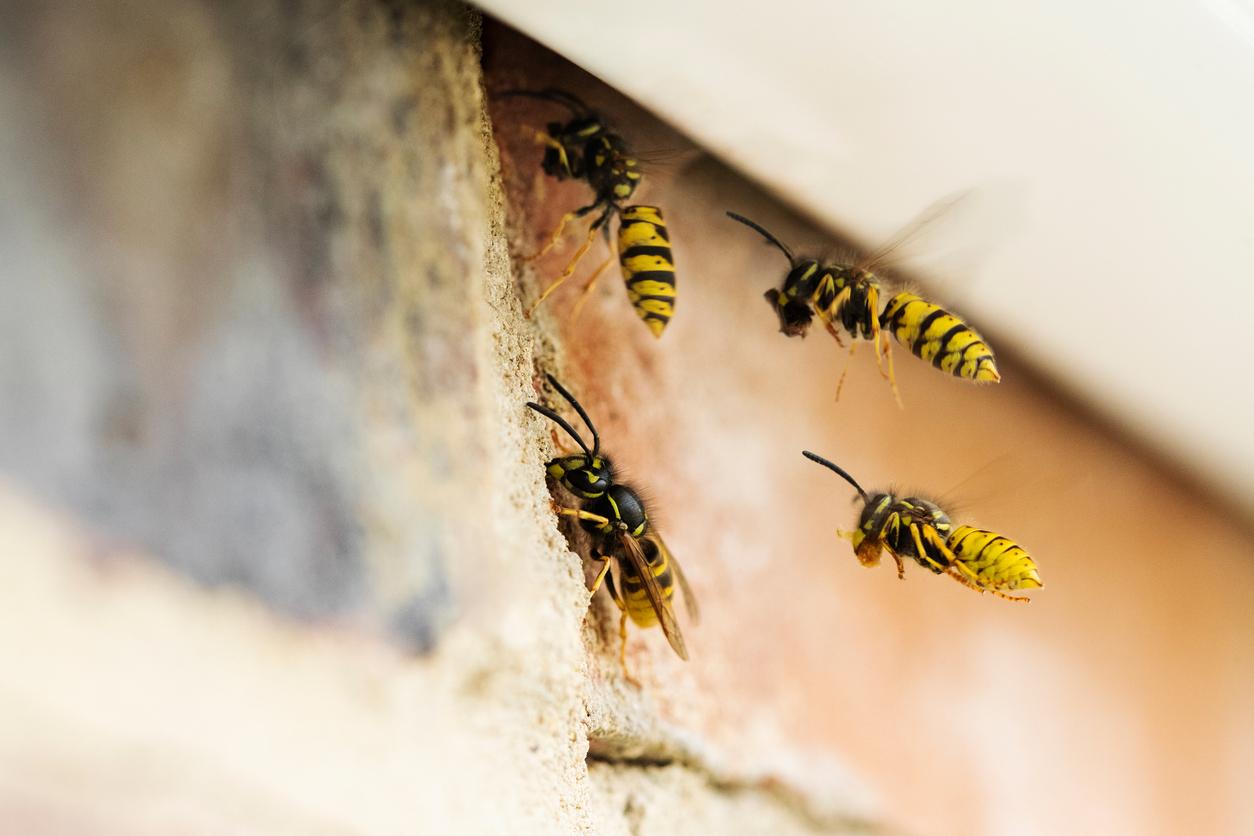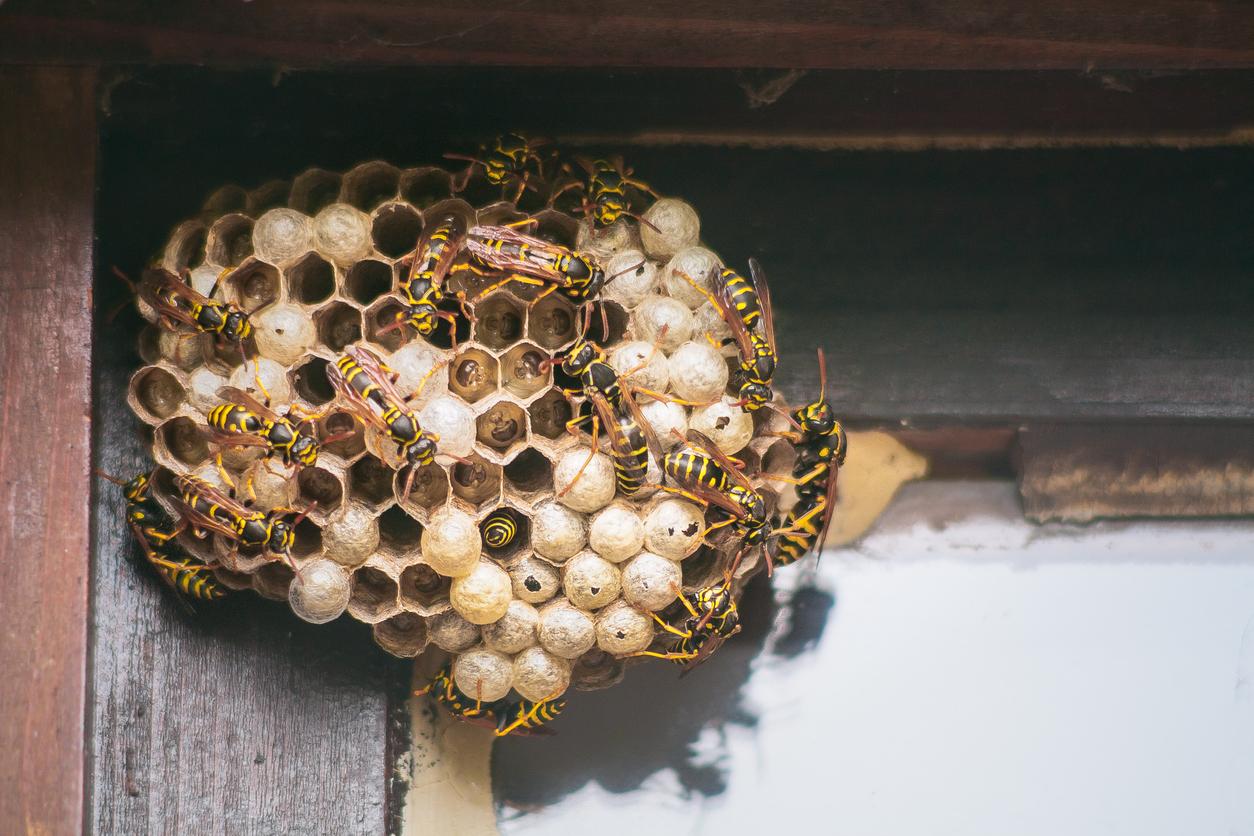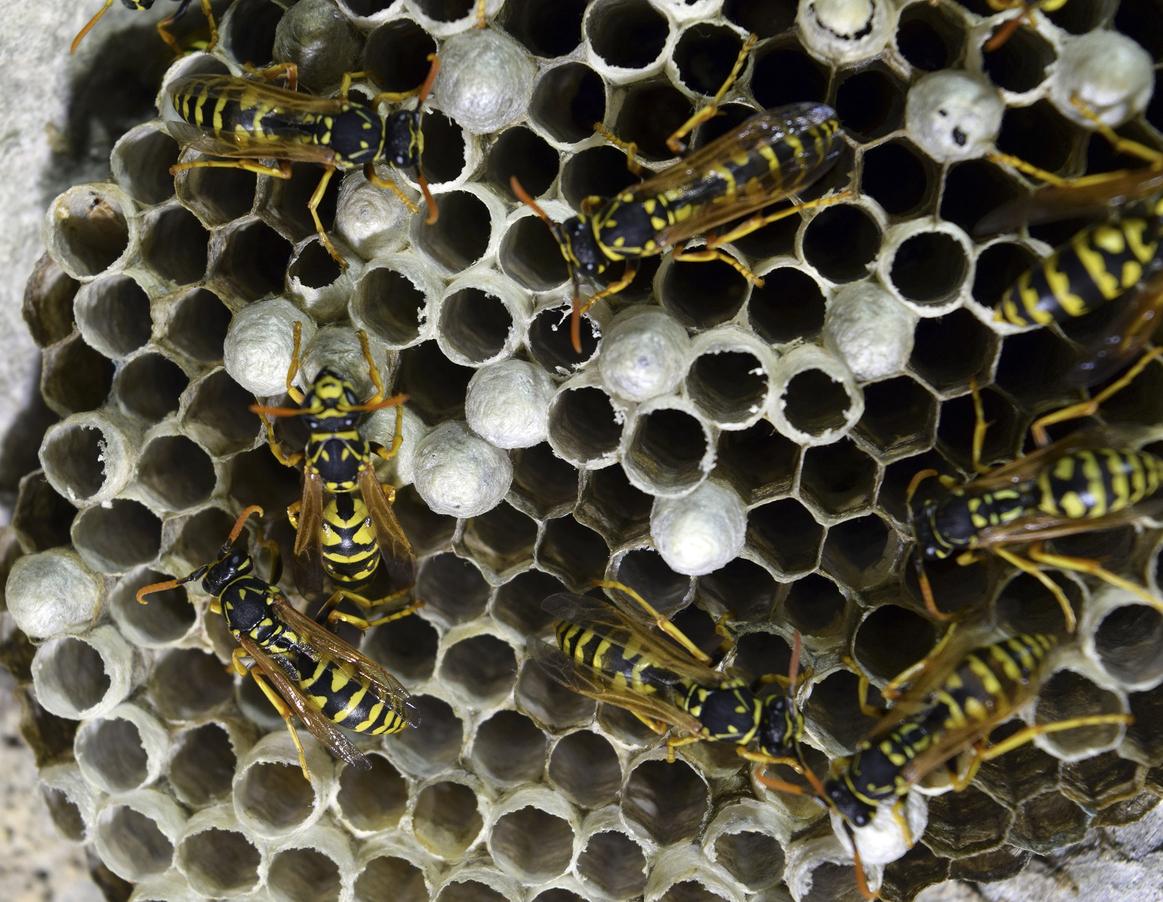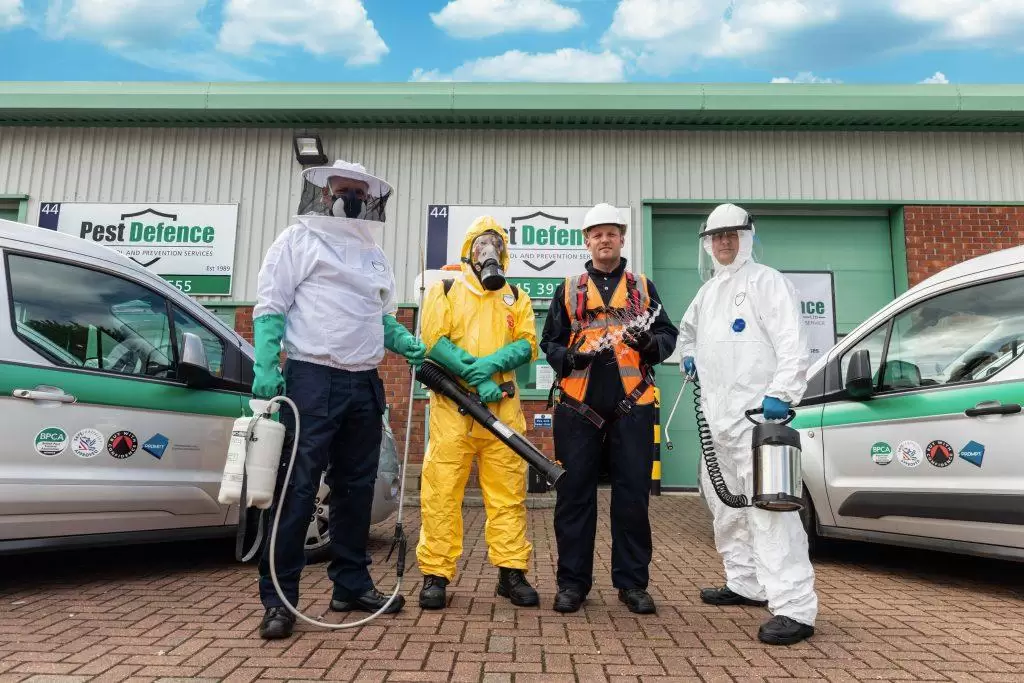When Are Wasps Most Active?
Despite their reputation for being aggressive and generally disruptive, wasps do play their part in our precious ecosystems. But that doesn’t exactly bring much comfort if you’re a homeowner looking to enjoy your garden or if you’re a business owner trying to drum up trade in your outdoor space.
One way you can stay ahead of any pest issues, but especially a wasp problem, is to learn about when they’re most active. This will keep you alert to the dangers they pose and allow you to take preventative action or make a swift call at the first signs of any trouble.
This month at Pest Defence, we’re discussing the point at which wasps are most active and what their general habits are in terms of choosing places to create a nest.

What time of year are wasps most active?
Wasps are the type of insect you’ll spot mostly between late March to late October. A lot depends on the weather each year, as spring is the trigger for many insects to become more active, but here’s a general breakdown of the months in which wasps are active and what you can expect from their behaviour:
Late March to Late April – Once the temperature begins to warm up for early spring, the queen wasps will emerge from hibernation to find a spot for a new nest. These queens will seek sheltered locations, such as lofts.
Late April to May – The queen will begin to lay her first eggs around this time, having secured enough sperm from drones the previous year. She will begin by hatching new drones and worker wasps, which will help to build the nest as she continues to lay more eggs, including new queens who may leave to form their own colonies.
June to July – By now, wasps from the nest will be at their most active. Worker wasps will forage for food and any additional material for the nest as required. This is the point at which they’re most likely to start invading your space, as they’re willing to go further afield than bees to find what they need.
August to September – This is the point at which the behaviour of wasps begins to turn a little more nasty. The queen wasps will be leaving the nest to find hibernation spots, leaving the workers without a nest to serve, causing them to roam and become desperate.
Late September to Early October – The aggression continues, with workers in panic mode and the queens moving away to finally hibernate (if they haven’t already). Once the cold weather sets in at this time of year, it generally triggers the end of the cycle for all but the queens.
Do wasps return to the same nest the following year?

In terms of the nest itself, wasps are unlikely to return to the same one next year. All of the workers will have died and the new queens will build their own nests once spring arrives. However, if you have a space that is suited to them, wasps may appear again in the same spot if the location meets their needs.
Should you leave a wasp nest alone?

A wasp nest can become quite large, and with the potential to house thousands of workers, it’s never advised that you try and remove or tackle the nest yourself. With their tendency to become aggressive without warning, the risk of injury is high, and this is particularly dangerous for anyone allergic to wasp stings.
If the wasps are not causing any harm because they’re out of the way, you may be able to leave them alone and wait for them to die off once the first freeze comes. If, however, they pose a threat to your children or pets – or products, staff and customers if you run a business – then read our next section for advice on wasp activity.
Safe wasp nest removal by the experts

Have you spotted active wasps in your home or business premises? Perhaps you’ve managed to follow the workers back and traced their route to reveal a nest. If this is the case, always call the professionals for safe, efficient wasp nest removal from your property.
At Pest Defence, we know exactly how to handle wasp nest removals, helping everyone across London and Essex to enjoy a more peaceful and relaxing spring, summer and autumn. We have over 25 years of experience, are fully accredited and insured, and we even act as a local authority-approved pest control company.
Call today and we’ll be happy to discuss any issues you’re facing with wasps.
